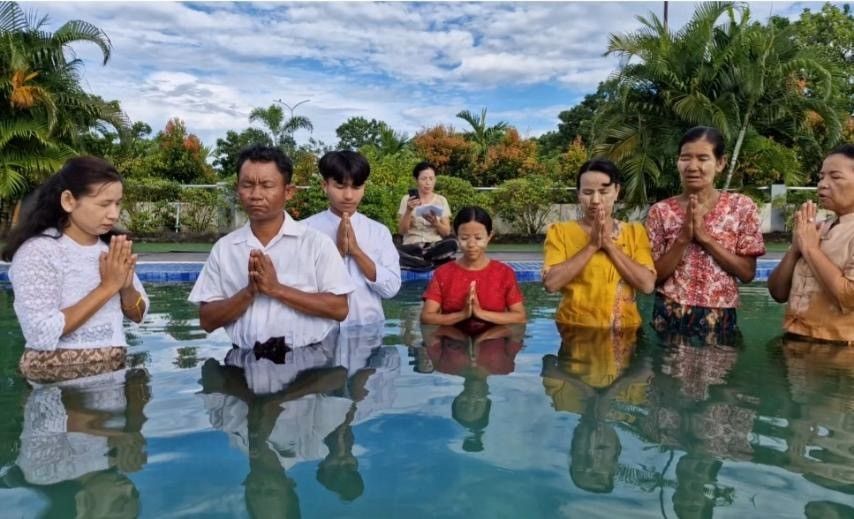© This article is an extract from Paul Hattaway's epic 656-page China’s Book of Martyrs, which profiles more than 1,000 Christian martyrs in China since AD 845, accompanied by over 500 photos. You can order this or many other China books and e-books here.
1941 - Mario Zanardi
November 19, 1941
Dingcunji, Henan
Mario Zanardi.
Mario Zanardi was born on August 8, 1904, at Soncino, Italy. He was the second of 13 children. As a boy Mario was interested in artistic pursuits and loved to paint and play music. He later became passionate about science, always fascinated by discovering how things work. This passion for science and engineering later proved a great blessing to Christian communities in China.
Zanardi’s mother died when he was 15, and the following year he entered the seminary at Cremona. For a number of years, he had no interest in missionary work but gradually the Holy Spirit began to guide him towards a life of service in the Orient. In June 1927 he graduated and was ordained a Catholic priest. Just two months later, after a brief time with his family, he commenced a long three-month sea journey to China. Zanardi was constantly sick from the rough seas yet never tired of sharing the gospel with the crew and other passengers. He described the trip as “his honeymoon.”
After arrival in Shanghai, Zanardi made his way to Kaifeng in Henan Province, the base of the PIME organization. He was forced to travel in the cattle car, but despite the countless stops and slow crawl of the train, he was never heard to complain.
At Kaifeng, Zanardi commenced study of the Chinese language, and just four months later the locals are astonished to hear him speaking, reading and writing, and even singing Chinese with some fluency! Zanardi simply gave the credit to God, saying the Holy Spirit had helped him. In 1928, just a year after his arrival in China, Zanardi was entrusted with leading the PIME work in the district of Weishi, near Kaifeng. Weishi contained small pockets of Christians spread over a wide area. It was a difficult assignment, but one which Zanardi undertook with relish and skill.
Throughout the 1930s he established Bible schools, medical dispensaries, and churches throughout the region. Despite many obstacles, Mario Zanardi managed to see the face of Christ in all people he came into contact with. He helped soldiers from all sides of the conflict, and often said his heart was broken with compassion for the suffering of those around him. On one occasion he wrote home:
“Oh, the life of a missionary! Those who come must be prepared to suffer and to live a life of exile…. In my letters, I describe to you the roses; I don’t need to tell you about the thorns, because you can read them between the lines…. The poetry of the missionary life is nice to see and read about…. But I’m also happy to be a missionary in the midst of great difficulties. When my heart is really burdened, I go to church and pour it all out to God. Sometimes He is the only one who understands me…. After a while, I can pick up my work and move forward once again.”[1]
In the spring of 1938, the situation in northern Henan deteriorated even further with the arrival of the Japanese army. Violence, pillaging and armed hold-ups became commonplace. Even nature seemed to conspire against the desperate Chinese people at the time, with a huge flood of the Yellow River adding misery upon misery to millions of people. After spending 13 years in China without a break, Zanardi missed his homeland greatly. He was able to purchase a rudimentary shortwave radio, and forced himself to wake up at three o’clock each morning in order to catch an Italian news programme. He told his family back home:
“You who live with modern conveniences cannot even imagine what sweet company that radio is to me, as it brings me news of home….. Yesterday, my spirit was sad and as gray as the sky. I thought about all of you, of things past and present; of my friends who have died or who have lost their way. I read your long letter, which reminds me of so many things, 20 years distant by now, and with such memories, my eyes filled up with tears. I couldn’t keep from crying. I stayed awake until dawn. Then, finally, I was able to sleep.”[2]
On November 19, 1941, Zanardi travelled with three other priests to minister in the town of Dingcunji. The group, led by Bishop Antonio Barosi, were seized by soldiers and accused of being “spies of the enemy and agents of capitalism,” even though “Nothing in the previous lives of the four could be even remotely described in such terms.”[3] One report said that when the soldiers burst into the dining room,
“the bishop spoke with them courteously, telling them the priests were in China only to preach the Gospel, but the bandits insisted that they were Italian (enemy) spies. At the signal of the ‘officer,’ the bishop and Zanardi were bound, beaten, and gagged. Then with napkins taken from the table, the ‘soldiers’ strangled their victims.”[4]
Mario Zanardi’s body was one of four pulled from an old well. This follower of Christ who had never wasted any opportunity to preach the gospel, had completed his work in this world.
1. Zambon, Crimson Seeds, 76.
2. Zambon, Crimson Seeds, 80.
3. Royal, The Catholic Martyrs of the Twentieth Century, 324.
4. Sister Ann Colette Wolf, Against all Odds: Sisters of Providence Mission to the Chinese 1920-1990 (Saint Mary-of-the Woods, Indiana: Sisters of Providence, 1990), 146.





